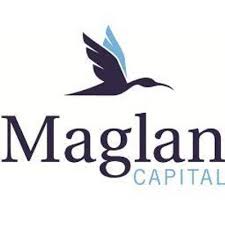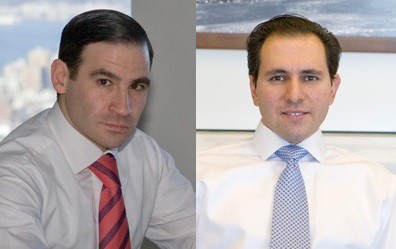 We’ve heard from several Los Angeles-area readers that Charter/Spectrum has dispatched third-party contractors to customer homes on service calls in plain clothing with no identification of any kind verifying who they are, and in several cases the “technicians” could not explain why they were there.
We’ve heard from several Los Angeles-area readers that Charter/Spectrum has dispatched third-party contractors to customer homes on service calls in plain clothing with no identification of any kind verifying who they are, and in several cases the “technicians” could not explain why they were there.
“This truck pulled up to my door and a man rang my bell to say he was from Spectrum and was there to replace a cable box,” said Stop the Cap! reader Wanda. “We had no idea who he was, he wasn’t in a cable company uniform, and he could not show me any identification showing who he was. We later learned he was some sort of contractor hired by Spectrum to handle service calls, but we did not let him in. I used to have Comcast back in Chicago and one of their technicians raped and murdered someone so I don’t open the door until I’m comfortable, and I wasn’t.”
One thing that hasn’t changed after Charter took over from Time Warner Cable for customer Todd Collins: his Charter technician arrived two hours late, also without a uniform, a truck with a Spectrum logo, or an ID badge. At least Collins knew why Charter was there — to install cable service in the new addition on his home.
“It was amazing to watch because it was a comedy of errors from start to finish,” Collins explained. “He brought the wrong paperwork, didn’t know what he was there to do, and had to make four phone calls to find someone at Charter to help. Two additional cable trucks eventually stopped by, so at least we knew we were dealing with Charter, and between the three technicians the work was grudgingly completed. We still don’t know how much Charter intends to charge us for this service and they admit they don’t know either.”
Charter also continues to attract complaints from customers about inconsistent information about its pricing and packages. One exasperated customer took to YouTube to declare Charter/Spectrum “thieves” for charging their notorious $199 upgrade charge when customers want broadband faster than the base 60 or 100Mbps package. In the video, the customer was originally quoted $100 to install and upgrade to 300Mbps Ultra service (Los Angeles was a Time Warner Cable Maxx city) which increased to $200 just a few weeks later. For that, the customer was told a technician would take up to two hours and install new lines and equipment. When the technician finally arrived (late), he spent about 15 minutes unwrapping and plugging in a replacement cable modem/router combo, and then left.
“I feel like I was just robbed $200,” the video blogger said.
“Our Ultra Internet unfortunately is $199,” a Charter representative said. “That’s just the installation charge. [The] activation fee is part of overall Ultra pricing and it covers higher network costs.”
Requests to reverse the fee, considering the 15-minutes spent plugging in a cable modem the customer could have accomplished himself were rejected. But because the cable technician was late, the customer got a one-time $20 service credit.
Stop the Cap! readers have had more success getting back the unnecessary and unconscionable $199 upgrade fee (or whatever else Charter calls it this week) by filing a complaint with the Federal Communications Commission.
An exasperated Spectrum customer in Los Angeles documents his displeasure with Charter’s prices, packages, and uniform-less technician. (7:32)


 Subscribe
Subscribe


 After years of financial problems, union problems, and service problems, customers of FairPoint Communications in northern New England report the company has stabilized operations and has been gradually improving service. A hedge fund holding 7.5% of FairPoint agrees, and is now pressuring FairPoint’s board of directors to sell the company, allowing shareholders that bought FairPoint stock when it was nearly worthless to cash out at up to $23 a share.
After years of financial problems, union problems, and service problems, customers of FairPoint Communications in northern New England report the company has stabilized operations and has been gradually improving service. A hedge fund holding 7.5% of FairPoint agrees, and is now pressuring FairPoint’s board of directors to sell the company, allowing shareholders that bought FairPoint stock when it was nearly worthless to cash out at up to $23 a share. “Not as patient as FairPoint’s own customers that spent several years of hell dealing with Verizon’s sale of its landlines in Vermont, New Hampshire, and Maine,” said FairPoint customer Sally Jackman, who lives in Maine. “It looks like the hedge funds want their pound of profits from another sale, exactly what FairPoint customers don’t need right now.”
“Not as patient as FairPoint’s own customers that spent several years of hell dealing with Verizon’s sale of its landlines in Vermont, New Hampshire, and Maine,” said FairPoint customer Sally Jackman, who lives in Maine. “It looks like the hedge funds want their pound of profits from another sale, exactly what FairPoint customers don’t need right now.”
 Washington State Attorney General Bob Ferguson
Washington State Attorney General Bob Ferguson 
 Comcast allegedly facilitated the service call charges until approximately June 2015 by encouraging technicians to use a service call “fix code” that permitted Comcast to “add service charges to a normally not charged fix code.” That allowed technicians to properly track Comcast’s own network troubles yet still charge customers to roll a truck to their home, even when the service call should have been free.
Comcast allegedly facilitated the service call charges until approximately June 2015 by encouraging technicians to use a service call “fix code” that permitted Comcast to “add service charges to a normally not charged fix code.” That allowed technicians to properly track Comcast’s own network troubles yet still charge customers to roll a truck to their home, even when the service call should have been free.